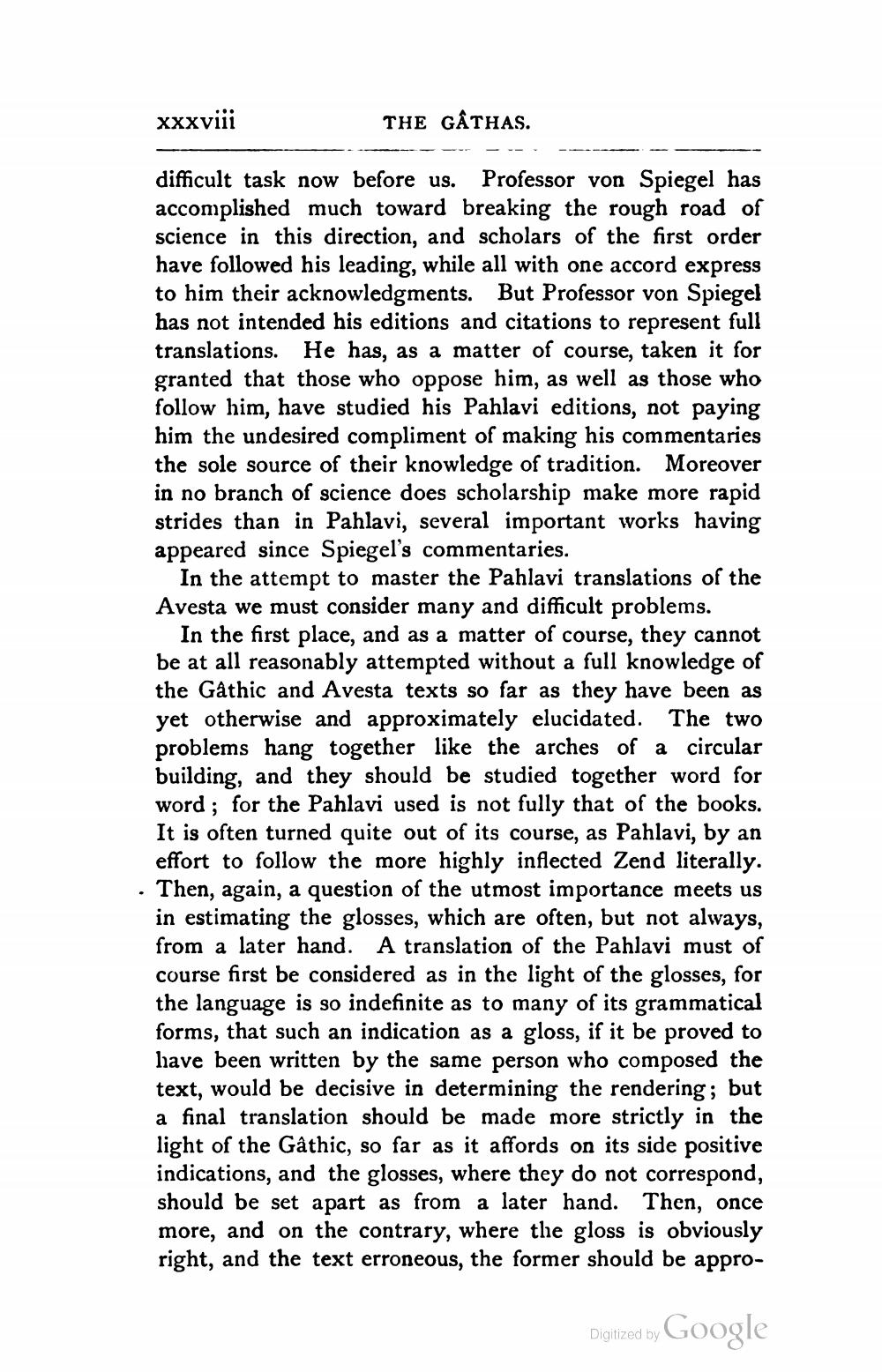________________
xxxviii
THE GÂTHAS.
difficult task now before us. Professor von Spiegel has accomplished much toward breaking the rough road of science in this direction, and scholars of the first order have followed his leading, while all with one accord express to him their acknowledgments. But Professor von Spiegel has not intended his editions and citations to represent full translations. He has, as a matter of course, taken it for granted that those who oppose him, as well as those who follow him, have studied his Pahlavi editions, not paying him the undesired compliment of making his commentaries the sole source of their knowledge of tradition. Moreover in no branch of science does scholarship make more rapid strides than in Pahlavi, several important works having appeared since Spiegel's commentaries.
In the attempt to master the Pahlavi translations of the Avesta we must consider many and difficult problems.
In the first place, and as a matter of course, they cannot be at all reasonably attempted without a full knowledge of the Gathic and Avesta texts so far as they have been as yet otherwise and approximately elucidated. The two problems hang together like the arches of a circular building, and they should be studied together word for word; for the Pahlavi used is not fully that of the books. It is often turned quite out of its course, as Pahlavi, by an
effort to follow the more highly inflected Zend literally. · Then, again, a question of the utmost importance meets us
in estimating the glosses, which are often, but not always, from a later hand. A translation of the Pahlavi must of course first be considered as in the light of the glosses, for the language is so indefinite as to many of its grammatical forms, that such an indication as a gloss, if it be proved to have been written by the same person who composed the text, would be decisive in determining the rendering; but a final translation should be made more strictly in the light of the Gâthic, so far as it affords on its side positive indications, and the glosses, where they do not correspond, should be set apart as from a later hand. Then, once more, and on the contrary, where the gloss is obviously right, and the text erroneous, the former should be appro
Digitized by
Digitized by Google




